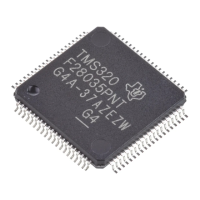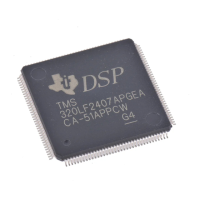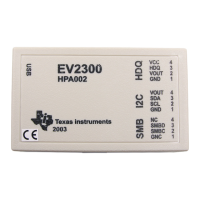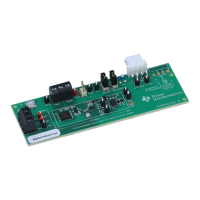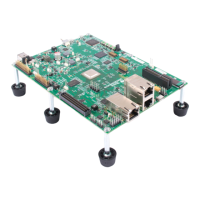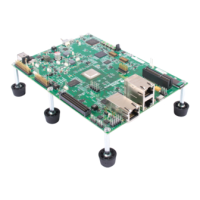TMS34010
C
Run-Time
Environment
5.4
Floating
Point
Conventions
5-6
A floating
point
value is represented in 32 bits for single precision and in
64
bits
for
double precision. All operations
are
done
in double precision,
so
single
precision
(32-bit)
values and integers are converted before any operations are
perform~d.
The
following
functionality is provided:
• Addition, subtraction,
mul~iplication,
division, negation, increment, dec-
rement
• Cl;>mparisons
•
Conversions
Unsigned integer
to
double, double
to
unsigned integer
Unsigned integer
to
float, float
to
unsigned integer
Signed integer
to
double, double
to
signed integer
Signed integer
to
float, float
to
signed integer
Float
to
double, double
to
float
•
Error handling
The TMS3401 0 floating
point
package
is
a custom-coded package that does
not
follow
usual C calling conventions. The calling conventions
for
routines
work
like a classic operand stack. First, the codegen pushes the floating
point
argument(s)
onto
the argument stack, then generates a call
to
a floating
point
function. The floating
point
function pops the arguments
off
the stack, per-
forms the operation
and pushes the result back
onto
the stack. The compiler
has
no
knowledge
of
the interned format
of
the floating
point
numbers, and the
only restriction
is
on the size
of
the number. This allows you
to
customize a
floating
point
package
for
your environment.
Some
floating
point
functions
exp~ct
integer arguments or return integer val-
ues.
For floating
point
functions, all integers are passed and returned in reg-
ister A8.
The
following
functional definitions apply
to
the floating
point
package and
are
used
by
the compiler. More detailed information about each one
of
the
functions can be found in Appendix
O.
-FP-AOD.
-FP-MINUS.
-FP_DIV
•.
_FP_MUlT
Each
takes
two
doubles and returns a double result.
-FP-NEGATE
Returns the negated value
of
the operand passed.
-FP-COMPARE
Takes
two
floats and a comparison operator (in A8) and
Note:
returns
an
integer result
of
0 or 1 based on the compar-
ison;
also sets the status ..
The compiler assumes that the status register is also appropriately set
upon return from the
-FP-COMPARE
function.
-FP-DECR
Takes one double and returns
two:
the
top
of
the stack
is
the
original argument decremented
by
one; the second
item on the stack
is
the original argument (unchanged).
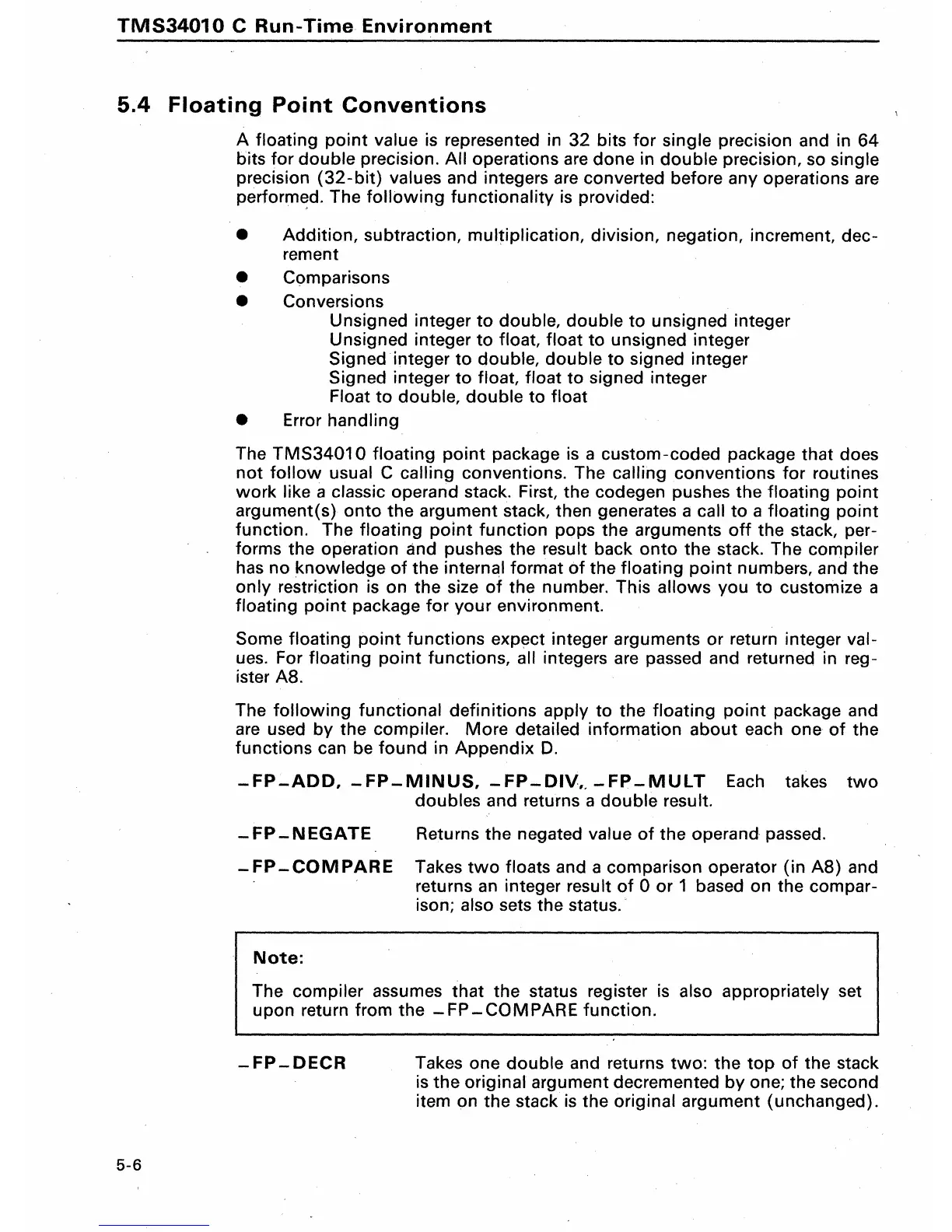